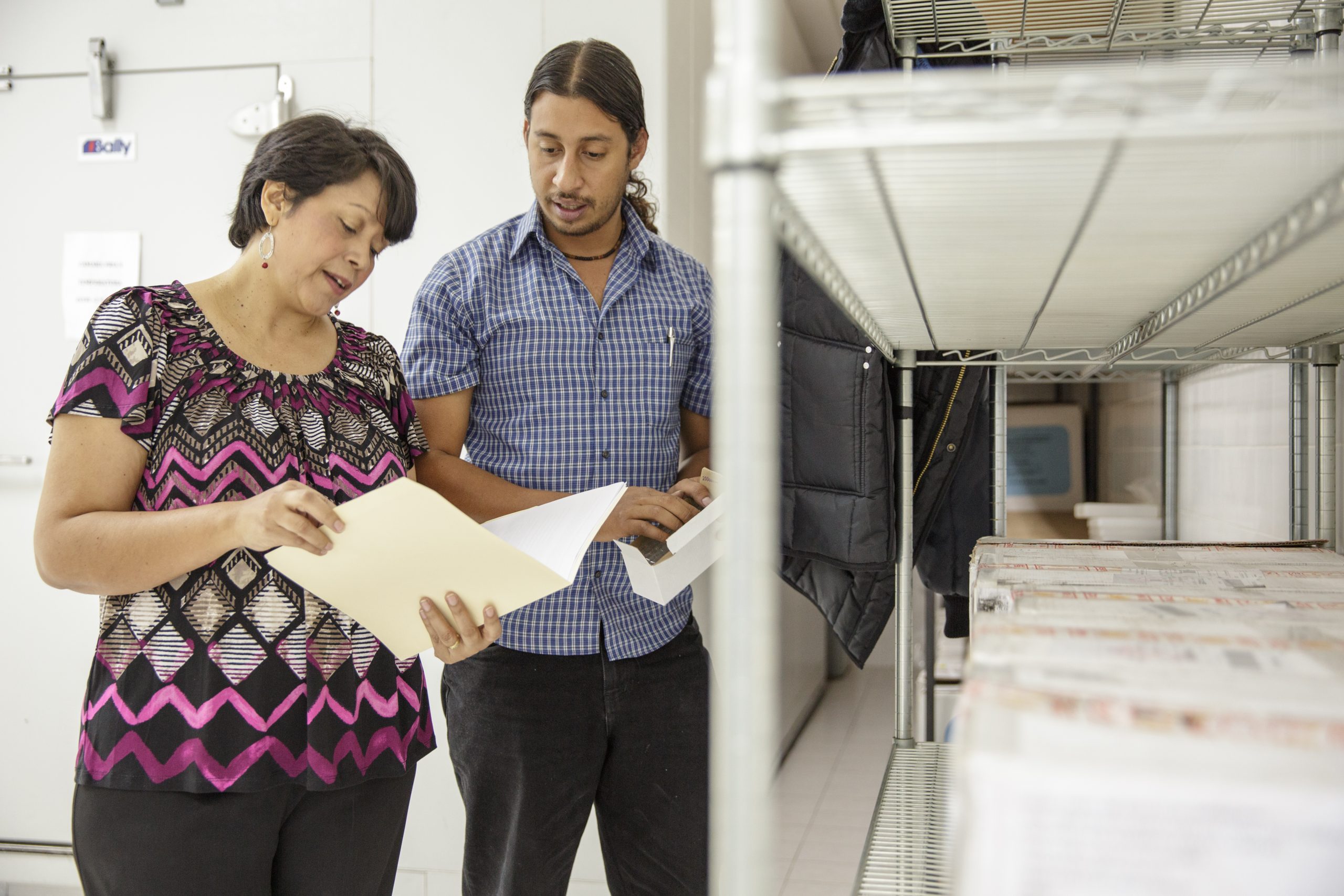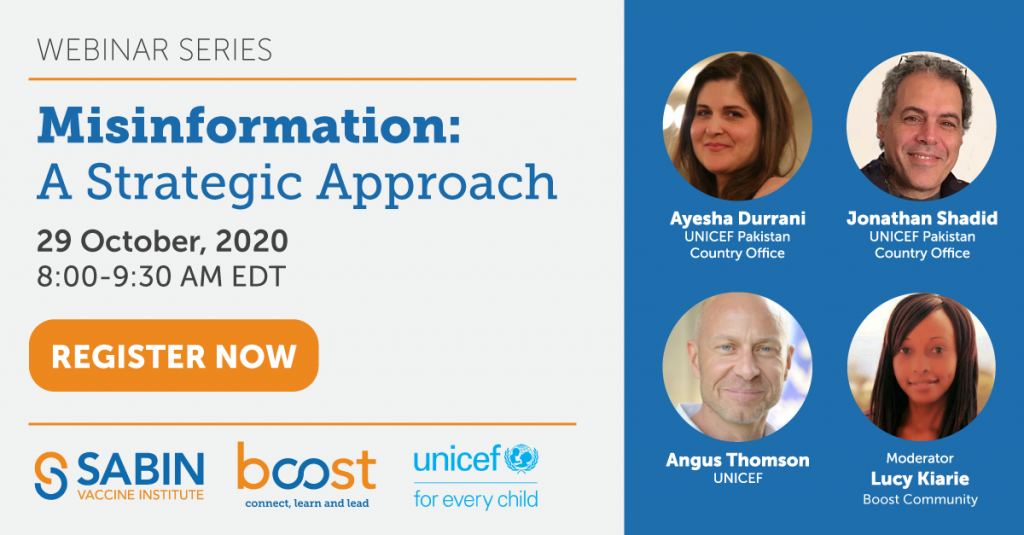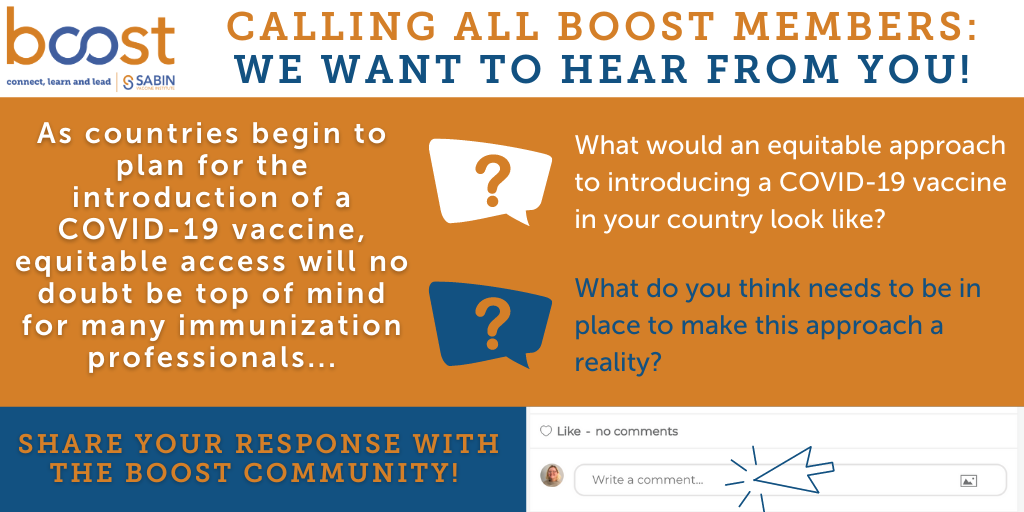October 2020 Insights
October was a busy month for the Boost Community, which involved new initiatives, learning groups, conversations and more.
Learning Groups: Intimate spaces for discussing current and critical topics
The Boost Community currently hosts 10 learning groups on the Boost online platform with nearly 950 Boost members participating, collectively. The most recently launched group, Supporting Supervisors During COVID-19, has taken off with more than 50 members. In October alone, the learning group hosted three live engagements around timely topics, such as vaccine hesitancy and cross-cutting topics, such as human resources for vaccine management and problem solving using the fishbone analysis tool.

Supporting Supervisors During COVID-19
Boost, together with immunization experts and partners, created this group to support immunization professionals during these challenging times, addressing the challenges caused by the COVID-19 pandemic. Join the group to view previous webinar recordings and interact with other supervisors.
Addressing COVID-19 Concerns: A Strategic Approach to Battle Misinformation
Not surprisingly, COVID-19 is still on the top of many people’s minds, including our community of immunization professionals, who are trying to carry out immunization programs in the midst of the pandemic. In particular, we have heard some major concerns about misinformation in communities around COVID-19 and a forthcoming vaccine.
“What needs to be in place first is scientific justification on the vaccine being safe... this will convince stakeholders and help in accepting the vaccine, for the larger community religious and community leaders need to be taken along for their buy-in of the vaccine.”
Attahir Abubakar, Boost Community Member
To respond to this constantly evolving issue, the Boost team has been gathering relevant resources from Sabin experts and partners to disseminate through the online platform. Below is an example of some infographics shared by Sabin’s Vaccine Acceptance and Demand team.
In addition to the materials being shared out on the platform, Boost, Sabin and UNICEF co-hosted an interactive webinar highlighting strategies for immunization professionals to manage vaccination misinformation. The webinar, Misinformation: A Strategic Approach, included representatives from the UNICEF Pakistan Country Office, who discussed their work in UNICEF’s Risk Communication and Community Engagement (RCCE) program, which uses social and behavioral data around COVID-19 to refine its intervention, messages and community engagement.

The webinar also featured Angus Thomson from UNICEF’s Demand for Immunization team, and was moderated by Boost Community member Lucy Kiarie. During the webinar, several important questions and comments were raised by participants, and were thoughtfully answered by panelists.
“Fighting misinformation is asymmetric in that it involves responding with emotional messages rather than debunking or responding with truth/facts. ”
Boost Community Member
Ensuring Equitable Distribution of a COVID-19 Vaccine
As the Boost community attempts to allay fears and concerns around introducing a new COVID-19 vaccine in their communities, they are also thinking about the process of acquiring and subsequently delivering this vaccine. Sabin and partners are also closely following the global developments around an effective COVID-19 vaccine and are thinking about how this vaccine can reach all populations, regardless of geography or wealth of those nations.
In order to make an equitable approach to a COVID-19 vaccine a reality, we first asked Boost members what was needed from their perspectives as critical players and leaders in the immunization space.

What followed was a rich discussion among more than 10 members of the Boost Community from all over the map, including: Nigeria, India, Pakistan, Iraq, Kenya, Cameroon and Sierra Leone. A few common threads emerged among these comments, including the need to engage the community in the preparation and rollout of a new vaccine and the need to ensure that the vaccine reaches vulnerable populations, such as health care workers and older adults. Boost Member Alain Blaise Tatsinkou from Cameroon even offered a few suggestions that could be included in a global COVID-19 vaccine allocation framework (to be tailored to each country) that resonated with other Boost members. Below are Alain’s five pillars for the framework for countries to follow:
- Ensure the vaccine is free of charge for beneficiaries.
- Create criteria for vaccine allocation that are evidence-based, equitable and take into consideration: geographic areas with high transmission’s rate, areas with high morbidity/mortality, most vulnerable population, at-risk populations such as health care workers, point of entries, etc.
- Develop a vaccine distribution system that is derived from the one existing already for routine immunization
- Improve or develop a new tracking system for vaccine distribution
- Strengthen the cold chain and have an updated cold chain evaluation (this is important as we do not know yet the type of vaccine(s) we will be dealing with)
“We might not have the economic and scientific might, but we are definitely involved in the discussions on how to make COVID-19 a reality.”
Emmanuel Musa, Boost Community Member
A few weeks after this discussion started, Sabin, with partners Dalberg and John Snow, Inc. Research & Training Institute (JSI) launched the COVID-19 Vaccine Equity Project – an initiative that will support low- and middle-income country immunization professionals in leading the equitable delivery of COVID-19 vaccines through their national immunization programs.

The COVID-19 Vaccine Equity Project
The COVID-19 Vaccine Equity Project takes a country-first approach, collaborating directly with country governments and immunization professionals to assess their readiness and preparedness and co-create country-specific action plans that both contextualize global guidance and reflect the realities of local service delivery. Once action plans are in place, the focus will shift to bolstering country-level capacity and expertise. The Boost Community will serve as the foundation of this program to ensure the perspectives and priorities of immunization professionals at both the national and sub-national levels are fully integrated into the design and delivery of activities.



